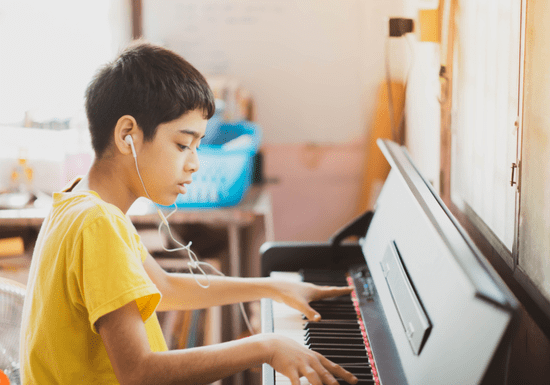
If you are a pianist who loves to play but wants to take your skills to the next level, you may be interested in developing your piano composition skills. Writing your own music can be a challenging but rewarding experience that allows you to express your creativity and develop your unique style. In this article, we will explore some tips on how to develop your piano composition skills.
Listen to Different Styles of Music
One of the best ways to develop your piano composition skills is to listen to a variety of music styles. This can help you to become familiar with different rhythms, chord progressions, melodies, and harmonies. Take note of what you like and don’t like about the music you are listening to and try to incorporate those elements into your own compositions.
Learn Music Theory
Music theory is the foundation of all music, and learning it can help you to understand how music works. This knowledge can then be applied to your own compositions, allowing you to write music that is harmonically rich and structurally sound. Take a music theory course, read music theory books, or watch online tutorials to learn the basics of music theory.
Practice Improvisation
Improvisation is a great way to develop your piano composition skills. It allows you to experiment with different chord progressions, melodies, and rhythms, and helps you to develop your improvisational skills. Practice improvising regularly, either by playing along with recorded music or by improvising on your own.
Start with Simple Compositions
When you are first starting to compose, it is important to start with simple compositions. This will allow you to focus on the basics of composition, such as melody, harmony, and rhythm. Start with short pieces, such as a simple melody with a few chords, and gradually build up to more complex pieces.
Experiment with Different Chord Progressions
Chord progressions are the foundation of most music, and experimenting with different progressions can help you to develop your composition skills. Try using common chord progressions, such as the I-IV-V progression or the ii-V-I progression, and then experiment with more complex progressions.
Record Your Compositions
Recording your compositions is a great way to hear how your music sounds and to make improvements. Record your compositions using a digital audio recorder or software and then listen to them critically. This will allow you to identify areas where you can improve and make adjustments to your compositions.
Share Your Compositions with Others
Sharing your compositions with others can help you to get feedback and improve your skills. Share your compositions with other musicians, friends, or family members and ask for their honest feedback. This can help you to identify areas where you need to improve and can give you new ideas for your compositions.
Learn from Other Composers
Learning from other composers is a great way to develop your piano composition skills. Study the works of other composers and take note of their use of melody, harmony, and rhythm. Try to incorporate these elements into your own compositions and experiment with different styles and techniques.
Practice, Practice, Practice
Like any skill, developing your piano composition skills takes practice. Set aside regular practice time to work on your compositions and make a commitment to stick with it. The more you practice, the better you will become.
Be Patient
Developing your piano composition skills takes time, patience, and dedication. Don’t get discouraged if your compositions don’t turn out the way you want them to right away. Keep practicing and experimenting, and eventually, you will develop your own unique style and create compositions that you are proud of.


